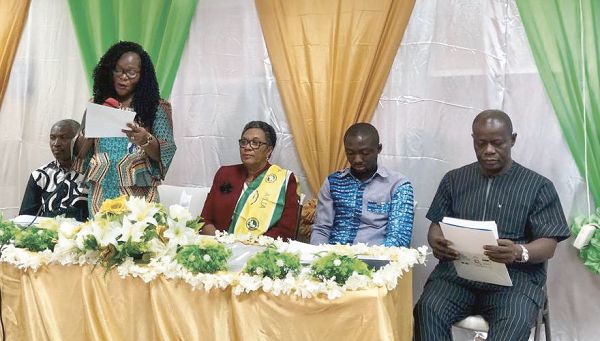
‘Give focus to e-libraries’
The Regional Director of World Reader, an international non-governmental organisation with focus on education technology, Mrs Ethel Sackitey, has called on Ghana to make installation of electronic libraries a priority.
According to her, incorporating technology into the library system was key to acquiring knowledge that would help to develop the country.
Mrs Sackitey was speaking at the closing ceremony of a meeting on ‘Local Content for African Libraries’ project in Accra last Friday.
She said, “we must teach our children that technology is an important tool that can develop their reading and literacy skills”.
The Local Content for African Libraries project seeks to create an enabling and exciting opportunity for young readers to use e-readers to access locally relevant content in the country’s libraries.
Evidence-based model
The project, which spans a year long, is being run on a pilot and is a collaboration between World Reader and the African Library and Information Association (AfLIA) and is funded by The Bill & Melinda Gates Foundation.
The project is being undertaken in libraries in Ghana, Uganda, and Zambia.
Mrs Sackitey explained that by implementing e-readers into early grade curriculum, the country was setting up the next generation of Ghanaians for a bright future.
“When properly implemented, there would be an increase in the number of children who actually read, increase in the amount of fun children get out of reading, and an increase in the amount of time children spend in the library”.
“The deployment of digital books and activities can be replicated in other public libraries across the implementing countries,” she said.
Reading culture
In addition, Mrs Sackitey said, the project paired digital technology and locally created e-books with extensive training, capacity building, and support for the Ghanaian library system.
The aim, she said, was to develop the resources and knowledge that libraries needed to improve on their ability to help children access and read content in their mother tongue.
She stated furthermore that libraries played an active role in creating support for reading cultures and served as agents of change and development.
The Executive Director of AfLIA, Dr Helena Asamoah-Hassan, urged the participants in the meeting to replicate the knowledge they had acquired to libraries in the country in order for the project’s impact to be strongly felt.
